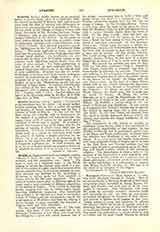

Avancini, NICOLA, chiefly known as an ascetical writer, b. in the Tyrol, 1612; d. December 6, 1686. He entered the Society of Jesus in 1677, and for some years held the chair of rhetoric and philosophy at Gratz, and subsequently that of theology at Vienna. He was rector of the Colleges of Passau, Vienna, and Gratz, Provincial of the Austrian Province, Visitor of Bohemia, and at his death Assistant for the German Provinces of the Society. In the midst of these onerous duties he found time to publish works on philosophy, theology, and sacred literature, none of which, however, have retained popularity except his “Meditations on the Life and Doctrines of Jesus Christ“. This work, originally in Latin, was translated into the principal European languages and went through many editions. The meditations are considered dry by some, and the English version in use contains much additional matter drawn from the works of other authors. But these meditations, in their simple as well as their extended form, have assisted many most efficaciously in the difficult task of daily meditation. Avancini was also the author of sermons, or orations, and a large number of dramas, suitable for presentation by college students. For a complete list of his works see Sommervogel, I. In English we have the “Meditations on the Life and Doctrines of Jesus Christ. Translated from the German edition of the Rev. John E. Zollner, by T. E. Bazalgette, with a preface by the Rev. G. Porter, S.J.” (London, 1875, 2 vols.). Another edition was issued in the Quarterly series by the Rev. H. J. Coleridge, S.J., in 1883.
EDWARD P. SPILLANE

